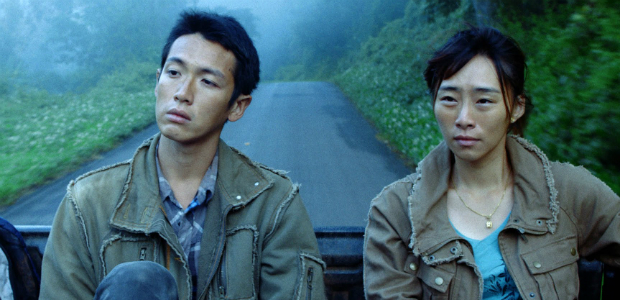The Road to Mandalay
If it makes you angry, then that means the film has worked.
Plot summary
Fleeing the conflict of Myanmar in search of a better life in Thailand, Lianqing (Wu Ke-xi) quickly finds herself in the company of lovelorn Guo (Kai Ko). After arriving in Bangkok, pragmatic Guo tries to convince Lianqing to follow him to the outskirts to find work in a ‘no questions asked’ textile factory. But the painfully unflappable Lianqing has more ambitious ideas. Unfortunately, these aspirations involve obtaining papers to allow her to work, and her journey towards obtaining them takes her in increasingly desperate, corrupt and heartbreaking directions…

We’re not wanting for tragedy at the moment, but it certainly seems like we could use a lesson or two in basic compassion. The tide of violent xenophobia masking itself as nationalist sentiment is perhaps the most niggling, pervasive example of this, and discussions on the issue frequently reduce the subjects to, at best, political pawns and, at worst, something resembling subhuman. It’s a minor miracle, then, that The Road to Mandalay is able to so delicately, so convincingly etch a human face onto an issue so abstracted and politicised.
Said human face is offered up by Wu Ke-xi, who here plays our protagonist Lianqing. We first meet her in a wordless opening that sees her crossing the river separating Myanmar and Thailand, before bring extorted by smugglers and bungled into the back of a van with likeminded refugees. Wu’s performance is immediately established as one of inaction, defined by its lack of movement, of expression, of flair. This isn’t a woman who’s fleeing to the big city in search of fame and fortune; this is a woman who is desperately trying to eke out a better life for herself, and who will meet any challenge she faces with an unflappability that is both naive and fiercely determined.
And it is down to Wu that the film sweeps you up like it does. A meek figure who is constantly presented as insignificant and alone by the sumptuous, wide-open framing, she is nonetheless unwavering in her belief that the system will treat her fairly if she can just get her papers, if she can just get her ID, if she can just obtain her passport. This steely determination is visible in her eyes throughout every exchange she’s on the receiving end of, and every compromising position she finds herself forced into. It’s a performance of aching humanity, and one that should be required viewing for the kind of abhorrent pundits who refer to refugees as ‘vermin’.
It helps that she is perfectly in key with a director keenly attuned to the rhythms of life in the underbelly. Midi Z aims for a low-key social realism through languorous, unhurried long shots that are content to simply observe the plight of the menial workers who make up the world of the film. The specify of his framing is delectable, allowing for multiple lines of action and, often, having no focal point at all, driving home the notion that Lianqing’s story is one of many and in no way spectacular.
All of which builds to a climax that is as devastating as it is unexpected. To many viewers it will be a step too far, betraying the nuanced humanism that preceded it in favour of sensationalism. It is, admittedly, a little on the nose, and the film would certainly have been no weaker without it. What it does do, though, is crystallise Mandalay’s carefully-cultivated themes of cultural isolation, human exploitation and the vicious cycles of depression that these orphans of society find themselves perpetually unable to break out of. If it makes you angry, then that means the film has worked.











COMMENTS